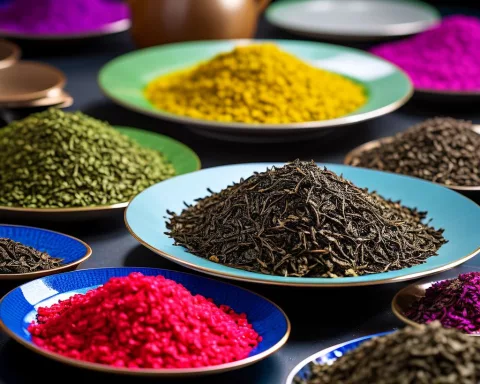Superstitions around the world tell us fascinating stories about different cultures. In Taiwan, writing a name in red ink is seen as a bad omen, while in Ghana, an itchy palm might mean money is on the way! Mexicans believe that placing a purse on the ground can lead to financial trouble. These beliefs shape daily life and remind us how people find meaning in simple actions. Understanding these superstitions not only enriches our travels but also helps us connect with the unique histories and values of the places we visit.
What are some fascinating global superstitions?
Global superstitions vary widely, reflecting cultural beliefs. For example:
– In Taiwan, writing a name in red ink symbolizes death.
– In Ghana, an itchy palm indicates incoming wealth.
– Mexicans avoid placing purses on the ground to prevent financial loss.
These superstitions reveal rich cultural narratives and values.
Unveiling Cultural Narratives Through Superstitions
In a world filled with diverse cultures, superstitions offer a fascinating glimpse into the values and histories that define various societies. The research by InsureandGo explores the captivating realm of global superstitions and reveals the unique beliefs that influence perceptions of luck worldwide. These age-old practices, deeply embedded in rituals and folklore, not only provide insights into cultural identities but also shape everyday behaviors, particularly for the superstitious traveler. Understanding these beliefs is essential for decoding the social customs that govern interactions in foreign lands.
Consider Taiwan, where writing a person’s name in red ink carries significant implications. According to Taiwanese cultural lore, red ink symbolizes death, making it akin to wishing harm upon someone. This belief underscores the power of symbolism in everyday life, reminding us of how seemingly innocuous actions can hold profound significance. Similarly, in Somalia, nail trimming is reserved for daylight hours to ward off evil spirits, emphasizing the protective power of light in contrast to darkness.
When traveling to Albania, one might stumble upon a curious belief: accidentally wearing clothes inside out is considered a sign of impending good fortune. This notion reflects a broader cultural narrative where everyday mishaps transform into positive omens. In Ghana, the human body becomes a medium for financial predictions, with an itchy right palm signaling incoming wealth and an itchy left palm suggesting expenses on the horizon. These superstitions create a rich tapestry of belief systems where the body communicates with unseen forces guiding prosperity.
Cultural Reverence and Symbolism
Crossing over to the Americas, Mexican superstition advises against placing a purse on the ground, as it is believed to lead to financial loss. This belief highlights the importance placed on respecting personal belongings as part of the quest for financial stability. Similarly, in Ecuador, Peru, and Martinique, placing a hat on a bed is thought to bring about misfortune, emphasizing a cultural reverence for everyday objects that are seen as vessels of luck and destiny.
Color symbolism also plays a crucial role in superstitions around the world. In Guatemala, wearing white on New Year’s Eve is thought to bring good fortune and renewed energy, reflecting the cultural importance of color in marking significant temporal transitions. Meanwhile, in Bolivia, the color of one’s underwear on New Year’s Eve is believed to dictate the year’s fortune—red for love and gold for wealth. This vibrant tradition highlights the interplay of color, clothing, and fate in Bolivian society. Chile, on the other hand, attributes universal luck to the color yellow, maintaining its symbolic importance regardless of the season.
The Spiritual Dimension of African Superstitions
Africa, a continent rich in spiritual traditions, offers a treasure trove of superstitions that are intimately connected to nature and the ancestral world. In South Africa, pointing at a rainbow is considered unlucky, as it is believed to disrespect the ethereal beauty of this natural phenomenon. Similarly, in Liberia, pointing at graveyards invites misfortune, as these sacred spaces demand reverence and respect. These beliefs encapsulate a broader African ethos where gestures carry profound spiritual significance.
In Namibia, encountering a hyena on the road is seen as a warning of impending illness, a superstition linked to the animal’s nocturnal and scavenging nature, which associates it with ominous forces. Zimbabwe and Nigeria counsel against whistling at night, as the sound is believed to summon malevolent spirits. These beliefs illustrate the intricate relationship between sound, time, and spiritual presences in African cultures.
The Universal Appeal of Superstitions
Despite their diversity, these superstitions share a common theme: they represent a society’s attempt to make sense of an unpredictable world. Superstitions arise from the human need to exert control over the uncontrollable, providing comfort amidst uncertainty. They turn ordinary actions into rituals imbued with meaning, transforming the mundane into the extraordinary. Whether by accident or deliberate practice, these beliefs shape the cultural landscapes of their societies, offering travelers a unique perspective into the worldviews of the communities they visit.
Understanding these superstitions goes beyond cultural appreciation; it becomes a crucial tool for respectful travel. As Letitia Smith from InsureandGo points out, familiarizing oneself with local beliefs enhances the travel experience, ensuring that travelers navigate cultural landscapes with sensitivity and respect. In a world where the unexpected can happen at any moment, superstitions remind us of the shared human desire for luck and protection. They invite us to engage with our surroundings in ways that honor the past and enrich the present, offering both cautionary tales and hopeful promises.
As explorers, embracing these superstitions allows for a deeper connection with the cultures we encounter. It challenges us to reflect on the beliefs that shape our own lives and encourages a spirit of curiosity and openness. Whether it’s knocking on wood for good fortune or avoiding the perpetual motion of a rocking chair, these cultural beliefs invite us to explore the world with wonder and respect.
FAQ: The Intriguing World of Global Superstitions
What are some examples of global superstitions?
Global superstitions vary widely across cultures. For instance, in Taiwan, writing a name in red ink is considered a bad omen as it symbolizes death. In Ghana, an itchy palm suggests incoming wealth, while in Mexico, placing a purse on the ground is believed to lead to financial trouble. These beliefs reflect the rich cultural narratives and values of different societies.
How do superstitions shape cultural identities?
Superstitions offer a fascinating glimpse into the values and histories that define various cultures. They provide insights into everyday behaviors, rituals, and social customs. Understanding these beliefs can enhance cultural appreciation and assist travelers in navigating social interactions respectfully.
Why is it important to understand local superstitions when traveling?
Familiarizing oneself with local superstitions can significantly enrich the travel experience. Awareness of these beliefs helps travelers navigate cultural landscapes with sensitivity, preventing unintentional disrespect or offense. It also fosters deeper connections with the communities visited.
Can you give examples of superstitions related to color?
Color symbolism plays an essential role in many cultures’ superstitions. For example, in Guatemala, wearing white on New Year’s Eve is believed to bring good fortune. In Bolivia, the color of one’s underwear on New Year’s Eve is thought to dictate the year’s fortune—red for love and gold for wealth. Additionally, in Chile, yellow is considered a universally lucky color.
What are some superstitions from African cultures?
African superstitions are deeply connected to nature and spirituality. For instance, in South Africa, pointing at a rainbow is considered unlucky, and in Namibia, encountering a hyena is seen as a warning of impending illness. Many cultures in Africa believe that certain gestures, like whistling at night, can summon malevolent spirits, emphasizing the spiritual significance of actions.
How do superstitions help people cope with uncertainty?
Superstitions often arise from the human desire to exert control over the unpredictable aspects of life. They transform ordinary actions into rituals imbued with meaning, providing comfort and a sense of agency amidst uncertainty. By engaging with these beliefs, individuals can find hope and reassurance, illustrating the universal human quest for luck and protection.










